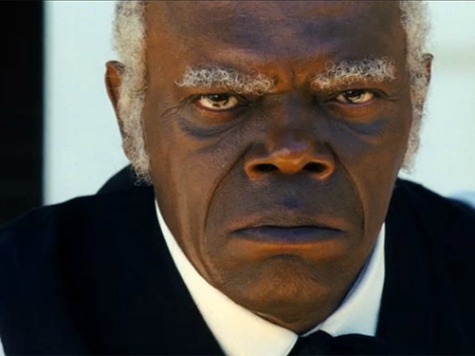The Boston Globe’s review of “Django Unchained” stands as a prime example of stellar movie criticism.
Critic Wesley Morris clearly spent hours crafting his thoughts, likely in tribute to the film’s artistic excellence. Yet Morris’ column contains a paragraph that could be considered even uglier than the violence pulsating through director Quentin Tarantino’s genre mashup.
Samuel L. Jackson plays crusty, waxen Stephen as a vision of depraved loyalty and bombastic jive that cuts right past the obvious association with Uncle Tom. The movie is too modern for what Jackson is doing to be limited to 1853. He’s conjuring the house Negro, yes, but playing him as though he were Clarence Thomas or Alan Keyes or Herman Cain or Michael Steele, men whom some black people find embarrassing.
What a loaded last sentence.
It’s a safe bet the writer includes himself in that category. The men in question are certainly very different. Thomas is a cool, calculated legal eagle, while Cain is a charismatic talker with great business savvy. Steele is a political animal, someone well versed in the ebb and flow of the news cycle. And Keyes is a social conservative of the first order.
What does their skin color have to do with it? Tarantino isn’t directly calling the four men house Negroes. That’s Morris’ interpretation. And it’s a rather distasteful one.

COMMENTS
Please let us know if you're having issues with commenting.